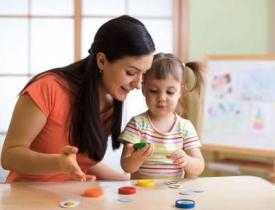Description
Course Name: Diploma in Child Care taker
Course Id: CCT/Q1001.
Education Qualification: 8th Pass.
Duration: 370 Hrs.
How You will Get Diploma Certificate:
Step 1- Select your Course for Certification.
Step 2- Click on Enroll Now.
Step 3- Proceed to Enroll Now.
Step 4- Fill Your Billing Details and Proceed to Pay.
Step 5- You Will be Redirected to Payment Gateway, Pay Course and Exam Fee by Following Options.
Card(Debit/Credit), Wallet, Paytm, Net banking, UPI and Google pay.
Step 6- After Payment You will receive Study Material on your email id.
Step 7- After Completion of Course Study give Online Examination.
Step 8- After Online Examination you will get Diploma Certificate soft copy(Scan Copy) and Hard Copy(Original With Seal and Sign).
Step 9- After Certification you will receive Prospect Job Opportunities as per your Interest Area.
Online Examination Detail:
- Duration- 120 minutes.
- No. of Questions- 60. (Multiple Choice Questions).
- 10 Questions from each module, each carry 10 marks.
- Maximum Marks- 600, Passing Marks- 40%.
- There is no negative marking in this module.
| How Students will be Graded: | ||
| S.No. | Marks | Grade |
| 1 | 91-100 | O (Outstanding) |
| 2 | 81-90 | A (Excellent) |
| 3 | 71-80 | A (Very Good) |
| 4 | 61-70 | B (Good) |
| 5 | 51-60 | C (Average) |
| 6 | 41-50 | P (Pass) |
| 7 | 0-40 | F (Fail) |
Benefits of Certification:
- Government Authorized Assessment Agency Certification.
- Certificate Valid for Lifetime.
- Lifetime Verification of Certificate.
- Free Job Assistance as per your Interest Area.
Syllabus
Diploma in Child Care Taker
Basics of Early childhood care and education
Growing Up in India, Vision for an Indian, Child Rationale for ECCE, Theoretical Foundation, Objectives of Early, Childhood Care and Education, Principles of Early Learning and Development and its implications for Practice, Curricular Issues and Concerns Multilingualism, Inclusion Multi- Age Grouping Gender Equality Harms of Early Formal, Instruction Preparing ECCE Teachers/Caregivers School, Readiness Domains of Development Birth – Three Years Pedagogical, Approaches to Principles of Programme, planning Guiding Principles of Programme, Planning Birth to Three Years: Focus on Care and Stimulation Early Learning Environment.
Child Development
Introduction to growth and Development – Scope of child development – Meaning and Importance of different stages of growth and Development – Heredity and Environment – Salient features of different stages in life – Factors influencing Growth and Development – principles of child development, Prenatal Development – Pregnancy – Signs and Symptoms – Prenatal development Factors influencing prenatal development – Diet during Pregnancy – Preparation for parenthood, Characteristics of Infancy – Care of new-born infant – Child rearing practices Development of infancy – Developmental Tasks – Sensory Development, Language Development, Physical and Motor Development and Cognitive growth – Concept Development.
Healthcare and nutrition
To introduce the students to the fundamentals of Nutrition, food and health, to familiarize them with importance of nutrition during various stages of life, To impart knowledge regarding etiology and management of nutritional disorders ranging from nutritional deficiencies to life style disorders, To emphasize on the importance of food safety, food quality, food laws and regulations, ongoing national programmes as well as imparting entrepreneurship skill for job enhancement, Fundamentals of Nutrition and Food Science, Nutrition for the Family, Introduction to Food Safety, Public Health Nutrition, Public Nutrition, Entrepreneurship for Small Catering Unit.
Advances in ECCE
Objectives of Early Childhood Care and Education (ECCE) Ensure each child is valued, respected, feels safe and secure and develops a positive self-concept enable a sound foundation for physical and motor development of each child- as per each child’s potential Imbibe good nutrition routines, health habits, hygiene practices and self-help skills Enable children for effective communication and foster both receptive and expressive language Promote development and integration of the senses Stimulate intellectual curiosity and develop conceptual understanding of the world around by providing opportunities to explore, investigate and experiment Enhance development of pro-social skills.
Diet and Meal management
Introduction to meal management, Balanced diet, Food groups & The planning of balance diet, Food guides for selecting adequate diet, Using dietary recommendations, Food labels to plan menu, Your guide to good nutrition (yggn) Plate model, Food groups, classifications of food group, Food pyramids, my pyramid (usda), Canada’ food guide, Chinese food pagoda, Filipino food pyramid, nutrition facts, Diet Therapy, Diet & stress in current scenario, Meal planning for the family, Indian meal patterns – vegetarian & non vegetarian, Food faddism & the faulty food habits.
Being aware and Managing the Child’s Need
Introduction, Growing Up in India, Vision for an Indian Child, Rationale for ECCE, Theoretical Foundation, Objectives of Early Childhood Care and Education, Principles of Early Learning and Development and its implications for Practice, Curricular Issues and Concerns, Multilingualism, Inclusion, Multi- Age Grouping, Gender Equality, Harms of Early Formal Instruction, Preparing ECCE Teachers/Caregivers, School Readiness, Domains of Development, Programme Planning and Practices, Early Learning Environment, Setting up and Early Years Classroom, Learning/ Activity Centres.
Develop and Maintain a Healthy, Safe and Secure Environment
Promoting a Safe Working Environment, How to prevent hazards at the workplace, Hospital electrical safety measures, Hospital fire safety measures, Patient care environment safety measures, Developing a workplace Safety and Health Policy, Planning – safety and Health objectives and Targets, performance standards, Implementation and Operation Structure and responsibilities, individual responsibilities, Safety Consultation, Awareness and competence, Communication – Information, coming into the organization, Information Flow within the Organization, Safety and Health System Records.

